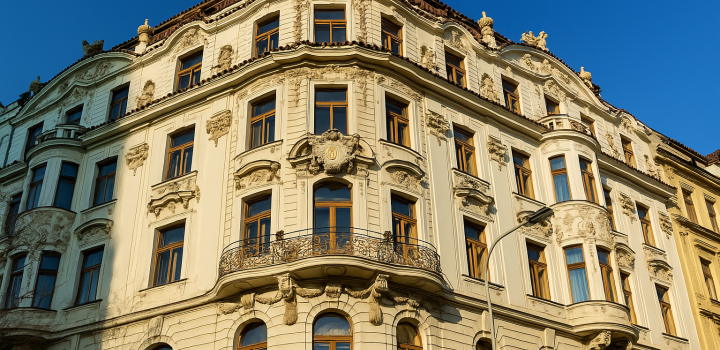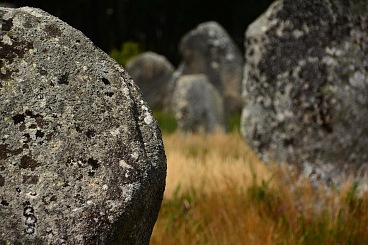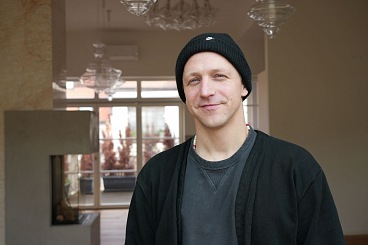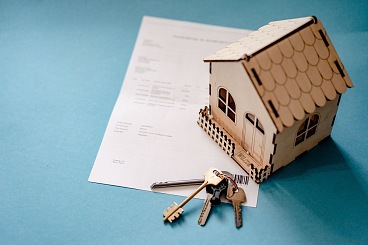Fast Confession – sociologist and gender equality specialist Silvia Porubänová: Social media give space to racism and other phobias
Fundamental rights and freedoms are a set of core human rights guaranteed to all people in the European Union. These rights are the same no matter where you come from, what you believe in or how you live. However, in many cases, principles such as dignity, justice, respect and equality are violated. We spoke to Silvia Porubänová, Director of the Slovak National Center for Human Rights. She spoke to LP-Life.com about the origins of discrimination, the favourable or unfavourable treatment of Romani people in Slovakia, as well as relations between Czechs and Slovaks.
What is the difference between the terms xenophobia and racism? Are both considered to be a form of discrimination?
That’s three questions in one. To put it very simply, we can say that racism is one of the reasons for discrimination. You can be discriminated against on the basis of your racial origin, for example. Xenophobia is a broader term than discrimination on the basis of race, as it often refers to this irrational, poorly conceivable rejection, fear and at the same time dislike of people who are rejected by another group of people for whatever reason (in the case of xenophobia, again because of ethnicity, race, nationality and related characteristic elements of appearance or other assumed characteristics and qualities). So xenophobia is also one of the many manifestations of racism.
Let's talk about the history and origins of discrimination. What was the turning point when we started talking about discrimination?
If we talk about discrimination as the unjustified (for various reasons) denial of rights to a certain group of people, it has to be said that such an attitude has existed since the beginning of human society, when one group — of course, the group that had power — somehow identified itself, or separated itself from other groups that it considered inferior. There are reports that even in ancient Egypt people who were engaged in hard physical labour or had darker skin colour were considered inferior and treated in a way that today we would describe as discriminatory. It is only since the Universal Declaration of Human Rights that we have been fighting and trying to eliminate discrimination as we define it today. In very simplified terms, after World War II, when it became quite open that all people were equal in dignity and rights.
How can we tell someone is racist?
Many people do not openly, face to face, subscribe to ideologies such as racism. It’s social media that provide space for racism and other phobias. In normal face-to-face communication, people will usually say, "I'm not racist, but...". Psychology says we should pay attention to what comes after the "but". That's when we express our own true beliefs, our own assessment of a situation. Again, simplified: a racist is one who condemns people who are different in skin colour or social background, origin. On the basis of expected or even real psychological and mental characteristics, he automatically considers them inferior, "unworthy", or simply as those who cannot share, say, a working, private or neighbourhood life with him. Until a few decades ago, it was customary to state that not only racism but let's say homophobia stems from a lack of experience, a lack of contact with people who are in any way different from our own social circles. Again, this does not apply across the board. As it might seem, the fact that our society opened up to the world more than thirty years ago, and young people, in particular, are very massively exposed to other cultures because they routinely go abroad to work or study, does not automatically mean that you completely eliminate or even prevent acquiring racist and other such attitudes. And it's not just the age criterion that applies here. After all, even people from the 60+ generation are now very active on social media, where they can also become the target group not only of various conspiracy theorists, but also of the purveyors of various hateful manifestations.
Which politicians are using offensive language and insults?
There’s a lot of them in our space as well, since using people's anger and frustration is the easiest way to get attention. Even in a COVID crisis, for example, which, although it might not be the cause of a particular problem... but perhaps someone is not fulfilling their dreams and does not have the opportunities they personally believe they deserve.
How does fascism tie into this?
This is a historical memento that must not be repeated, precisely for the reason that apparently, the danger of the agency of such ideologies was underestimated in the 1930s in Germany, or in wider Europe, as well. Hitler, when he started out, was a ridiculous figure and nobody took him seriously. But it took very little to make him a real master of the world.
Which age groups have the most radical attitudes?
Again, I wouldn't generalize that it's, for example, people under twenty, although it's usually said that it's adolescents or high school students. I don't think that's universally true in this era of social media. People are able to mobilize and recruit across all social spectra, across different age groups. Just look at the composition of the participants in protest demonstrations, whatever their reason. You can't really say that protesting against the establishment is exclusive to the young at the moment...
Which countries do you think have the highest levels of negative attitudes of xenophobia and racism and which have the lowest?
In principle, it can be said that the Nordic countries generally tend to be the most open to otherness, and radicalism and aversion to foreigners are most rampant in the former Eastern Bloc countries, whether it’s our country, Hungary or Poland.
Can we say which religious groups are perceived the worst by young people and why?
Probably the ones they know the least about, which, since 2001 is, unfortunately, Islam. But it's not just Eastern religions. Maybe it applies to all religions that we personally know nothing about. It also has to do with media coverage and mainstream public opinion. What is presented as harmful, dangerous and murderous in the opinion-forming media and especially on social media nowadays will be perceived as such, especially by young people.
Mrs. Director, what is the attitude of young people towards the inhabitants of neighbouring countries based on their nationality? It seems to me that Slovaks have the most problematic attitude towards Hungarians living in Slovakia.
The Slovaks still have the most favourable attitude towards Czechs, and I hope it works the other way around as well. Our proximity is irreversible and unquestionable. As far as the Hungarians are concerned, I hope we’ve put all that behind us, thank goodness. It was the hatred towards Hungarians living in Slovakia in particular that was massively fueled by politicians of the 1990s and the turn of the millennium. Perhaps the current migration problem has also broken this stereotype and prejudice. We will also see in the results of the census how many people will declare Hungarian nationality and how many people will list this nationality as their second nationality, since this was a first-ever chance to do that. This shows that this is certainly not the main problem in Slovakia. Slovak men and women will not let it be imposed on them that Hungarian men and women living in Slovakia are any sort of threat to them. I think that real coexistence in the villages and towns is excellent and exemplary, so the politicians have fortunately not managed to introduce non-existent problems into the lives of people who have lived side by side in Slovakia for decades. Slovakia and the Czech Republic is a special phenomenon. Since the division of the republic in 1993, the feeling of a "velvet break-up" still lingers in the European consciousness. If there is one thing we can be proud of as nations, it is that we can indeed remain brotherly and feel affection for each other even years after the split. In spite of the injustices that have sometimes been perceived on both sides, we have never lost our capacity for mutual cooperation and harmonious coexistence. If we are setting an example for Europe in anything, it is in how to part amicably and yet continue to communicate and cooperate very intensively and remain close to each other.
It is said that the Romani were better off under communism...
There was a general obligation to work, and those who did not work were punished under the relevant law section for freeloading. On the other hand, there were secure employment opportunities for everyone. So if you were talking about the number of Romani people who have fallen into poverty, or that there is already a generation of people who don't even have work habits because they never managed to enter the job market, I think that is true. That's a big problem. It is also a big challenge for all Slovak public politicians, because no society can afford to have tens of thousands of its members living outside the mainstream. So, not only for humanitarian reasons, but also for the sake of maintaining social cohesion and the stability of society, it is necessary that the level of individual groups is equalized, that no one hits the social bottom and that the 'humiliated and offended' are as few as possible in Slovakia.
Do you think Romani in Slovakia have any advantages over "ordinary people"?
No, they don't. That is a huge prejudice. People think they are helping themselves to high pensions and disability pensions, but it’s not the case. Having, for example, eleven children won’t get anyone any amazing income. Benefits are set up so that there are limits after the fourth child. There’s nothing to envy them, certainly not their poverty. I don't think they are getting any over the top rights and benefits in Slovakia.
Is the Government addressing this problem of discrimination and xenophobia?
The Government is addressing the discrimination and xenophobia problem secondarily. It means the Government addresses it when it gets to the point where it oversteps the Law on Equal Treatment. Slovakia has had an anti-discrimination law for several years now, so it has only been the government's job since then.
What do you think we will face in the next few years?
For the past two years, we have faced an absolutely unexpected threat caused by COVID-19. No one can possibly know how long we will deal with the consequences. The disease has brought with it fatal effects on all the social systems of the entire global world, so we cannot predict what will happen to the aforementioned social cohesion, to people, to their choices in terms of what profession they will choose and in general, to their trust in the state, in society, in themselves... I don't think anyone dares to say what will happen in two or three years.
Mrs Director, thank you for the interview.
Fast confession:
How do you feel about discrimination?
They say that social media destroys marriages. Why is that?
What does the concept of humanity mean to you?
If you had to describe yourself in three words, what would they be?
What is your motto in life?
What do you think about the Slovak government classifying people into vaccinated and unvaccinated?
Which statement about certain vulnerable groups annoyed you the most?
How do you like to spend your free time?
How do you rate the government's performance so far?
Which Slovak politician do you blame the most and why?
What myths are circulating in Slovak society regarding human rights?
What is your relationship with fashion?
You come from a family of artists, how did that impact your life?
Apart from your work, you love cars, is there one you particularly covet?
What would you ask me?
Well, I'm hoping that this year will be better, that the COVID will fade away and that we'll all be just fine.



















